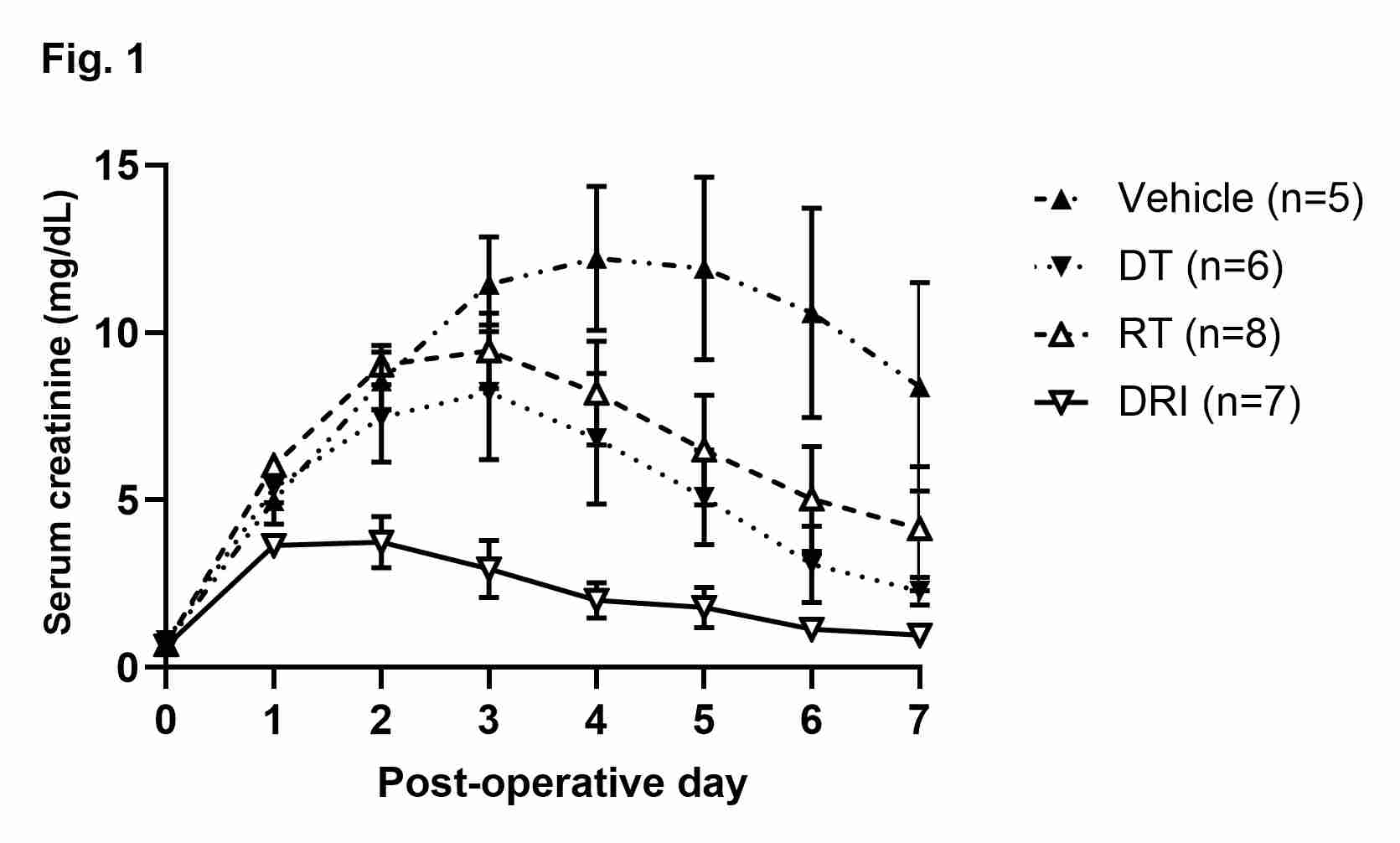Donor Intervention and Recipient Treatment with Recombinant Human C1 Inhibitor Prevents Delayed Graft Function in a Non-Human Primate Model of Kidney Transplantation
1Surgery, University of Wisconsin, Madison, WI, 2Pharming Technologies BV, Leiden, Netherlands, 3Pathology, UT Soutwestern, Dallas, TX
Meeting: 2020 American Transplant Congress
Abstract number: 68
Keywords: Graft function, Immunogenicity, Ischemia, Kidney transplantation
Session Information
Session Name: Deceased Donor Intervention and Management Research
Session Type: Oral Abstract Session
Date: Saturday, May 30, 2020
Session Time: 3:15pm-4:45pm
 Presentation Time: 3:15pm-3:27pm
Presentation Time: 3:15pm-3:27pm
Location: Virtual
*Purpose: There is currently no FDA-approved treatment to prevent delayed graft function (DGF) in kidney transplantation. We have shown that donor or recipient treatment with C1 inhibitor (rhC1INH) prevents DGF in a non-human primate model. Here we assess whether the combined effect of dual donor-recipient intervention (DRI) with rhC1INH to prevent DGF and antibody-mediated rejection (AMR) is superior to donor (DT) and recipient treatment (RT) separately.
*Methods: Brain death (BD) was induced and donors were maintained 20 hours using conventional management. After 44 hours cold storage, recovered kidneys were transplanted into non-sensitized ABO-compatible, fully-mismatched recipients that underwent bilateral nephrectomy. Recipients received daily triple immunosuppressive therapy and were followed for up to 120 days. Recipient groups included vehicle controls (n=5), DT alone (n=6), RT alone (n=8) and dual DRI (n=7). Treated donors received 500 U/kg rhC1INH plus heparin infusion every 3 hours post BD; recipients received 500 U/kg rhC1INH plus 40 U/kg heparin at 0, 12 and 24 hours post-reperfusion.
*Results: RhC1INH prevented DGF in 100% of DT (6/6), 88% RT (7/8) and 100% DRI (7/7) animals compared to 20% of vehicle (2/5, p<0.05 for all). We observed accelerated graft function recovery in DRI with a significant drop in serum creatinine compared to vehicle and RT (p<0.01, Fig.1). On day 4, inflammatory cytokines MCP-1 and IL-18 were reduced in RT and DRI compared to vehicle (p=0.02, p<0.01), as was urine AKI biomarker TIMP-2●IGFPB7 (p=0.02, p<0.01). Allograft biopsies obtained within the first week showed reduced C3b deposition in DT, RT and DRI compared to vehicle (p=0.03 for all). Two vehicle animals were euthanized within ten days due to profound renal azotemia. DRI recipients showed superior death-censored AMR-free survival: <29% (2/7) developed AMR compared to 100% vehicle (3/3) and DT (6/6), and 63% RT (5/8, p=0.03).
*Conclusions: RhC1INH for the prevention of DGF is a novel approach that targets complement-mediated injury associated with BD and ischemia-reperfusion in kidney transplantation. The effect of dual DRI is evinced by synergistic accelerated recovery of graft function and improved AMR-free survival in a unique translatable model of BD and prolonged cold ischemia. These results merit further investigation.
To cite this abstract in AMA style:
Reyes JA, Blanton C, Eerhart M, Chlebeck P, Springer M, Ponstein Y, Amersfoort Evan, Torrealba J, Yankol Y, D'Allessandro A, Fernandez L. Donor Intervention and Recipient Treatment with Recombinant Human C1 Inhibitor Prevents Delayed Graft Function in a Non-Human Primate Model of Kidney Transplantation [abstract]. Am J Transplant. 2020; 20 (suppl 3). https://atcmeetingabstracts.com/abstract/donor-intervention-and-recipient-treatment-with-recombinant-human-c1-inhibitor-prevents-delayed-graft-function-in-a-non-human-primate-model-of-kidney-transplantation/. Accessed February 18, 2026.« Back to 2020 American Transplant Congress

